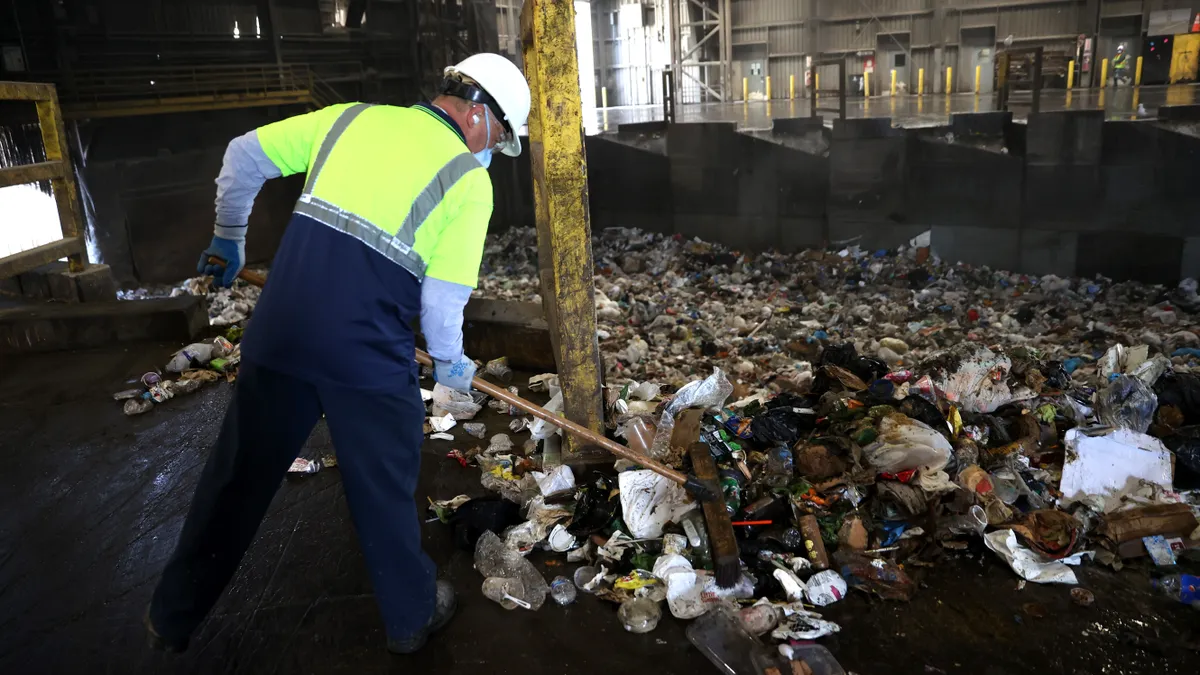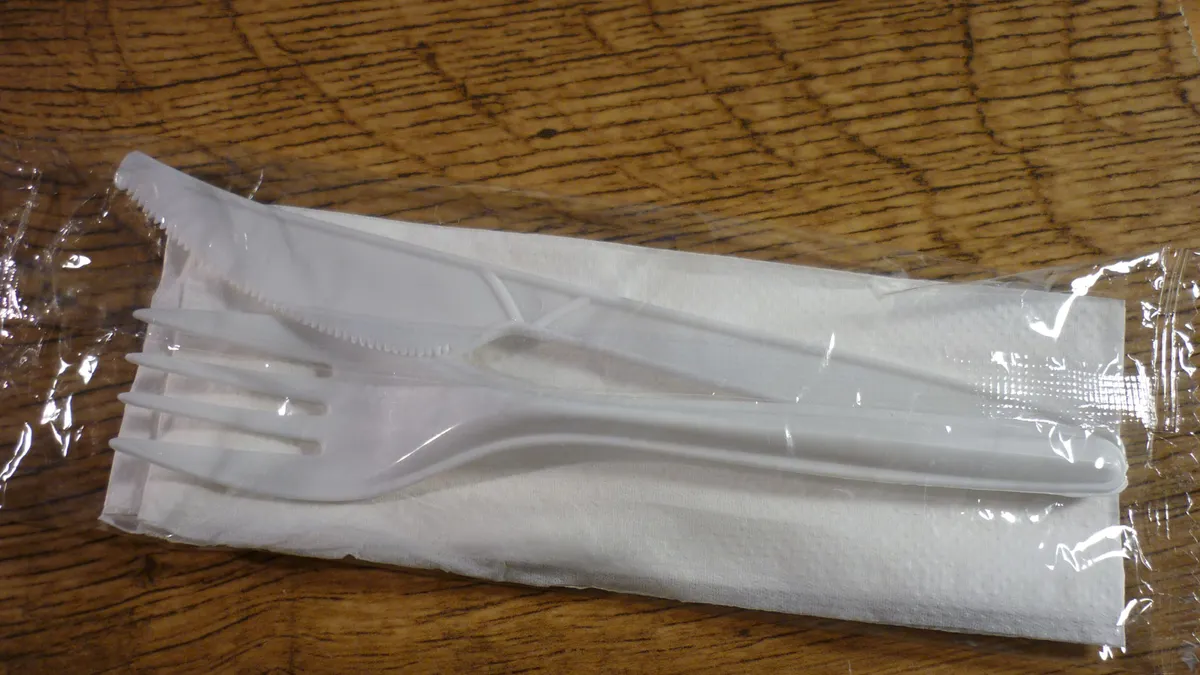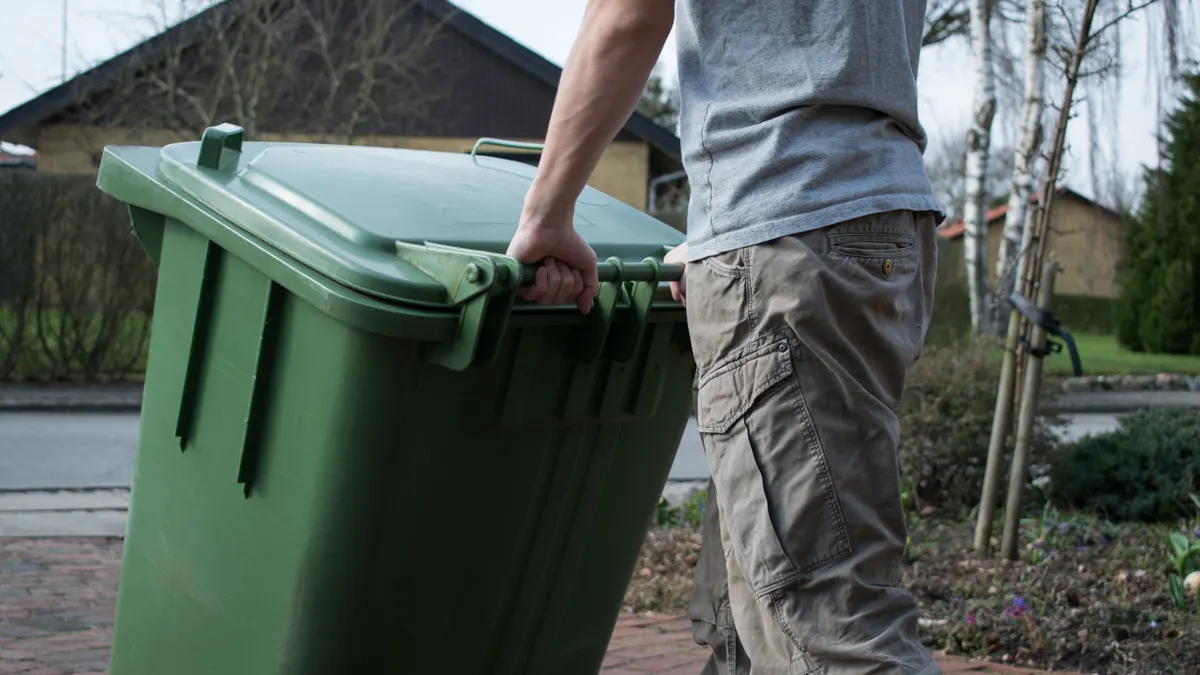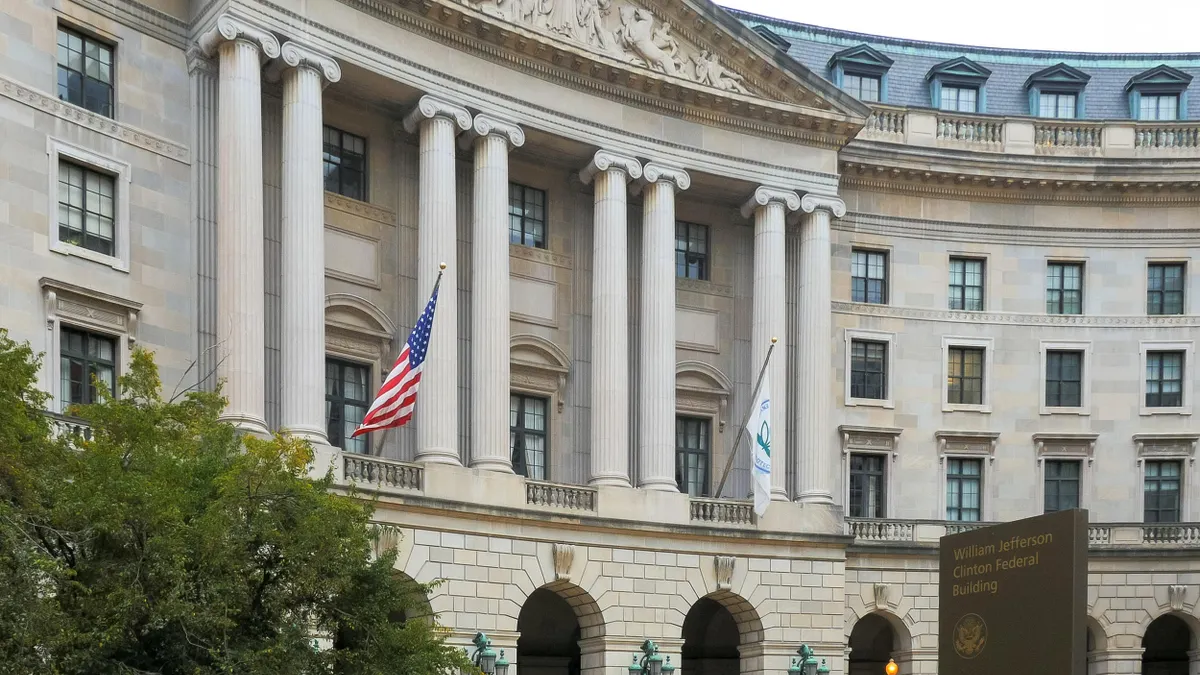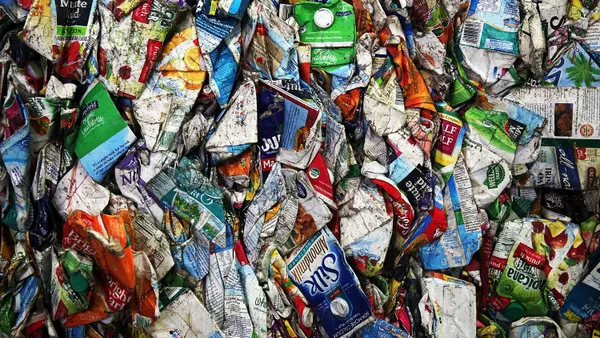When a young 20-something and his friends noticed that it usually fell on the family and, often, a cadre of groomsmen to clean up after weddings, a business idea was born.
In 2015, a new, dedicated service to help with wedding cleanup — and, crucially, managing the waste from those events — was developed by Philip Torchio. The Broomsmen began providing an "upgraded waste management service, and making it look good," Torchio told Waste Dive.
"We were like, ‘wow, there’s a lot of trash.’" Torchio said. "Nobody was recycling at weddings, because it wasn't something that they were thinking about."
Since then, the Bend, OR-based company started providing wedding services and specially-made containers for guests to separate their waste for recycling and composting.
The business grew from there when a local music venue, the Les Schwab Amphitheater, asked Torchio and his team to adapt their model for events and shows. Today, the company offers waste management and recycling services for any interested event — and even has elopement packages, too. After helping with setup and cleanup of events, the company contracts with local haulers Bend Garbage and Cascade Disposal to get materials recycled or landfilled.
Following the success of The Broomsmen, Torchio created Triple Flare Recycling in March 2017, a separate company that provides a similar service. While The Broomsmen has become a recognized brand in Bend for weddings and events, Triple Flare was created to contract with the government. Currently, Triple Flare is in its fourth week of working with the Bureau of Land Management in Oregon, helping crews battling wildfires recycle and divert waste. Waste Dive caught up with Torchio to learn more about the company and his thoughts on the future of recycling.
The following interview has been edited for clarity and brevity.
WASTE DIVE: How does The Broomsmen work? What is it about your service that's different?
PHILIP TORCHIO: People are willing to use the separation stations and participate, because [the stations] show that someone put the time in energy to make these units for them, and it looks cool. You put a dumpster and 30 black trash cans up at an event, it's trash. It's nothing, that's what people are used to. That's just, ‘fill it on up, get it out of here.’ We've really made it look sharp. That is one of the most successful things that we've done.
How does a company like yours go from servicing weddings to helping the U.S. Forest Service (USFS), as they're battling wildfires?
TORCHIO: It happened really fast. Someone from the BLM (Bureau of Land Management) saw an article in the local newspaper, and said [the USFS] had issues at fire camps, said they needed help recycling. They asked me about a year ago to see if I could get in on a contract to go out to one of these fire camps.
It turns out that this is just one of the worst fire seasons that we've ever had, so it's just a timing thing. We've been out here. This is our third week. Hopefully we're staying until the end. We've been getting a lot of good feedback from people, and everyone's really happy out here.
What sorts of diversion rates are you seeing with the USFS?
TORCHIO: What we're finding is that just by us showing up, not influencing the waste stream, we’re getting near 50%. With the forest service, we ran the numbers. If they allowed us to start composting, we think we could get 70% diversion.
Aside from events under The Broomsmen brand and the project with the USFS, are there any other projects you're working on? Or other sort of 'niche' waste streams that you think need attention like weddings and fire camps?
TORCHIO: We're looking at apartment recycling. We've studied how you would get those multi-family units, how'd you go to them and help them recycle. That's a side project we've been working on. It's mostly just a concept, but we've been looking at how, like, if you installed a unit in each apartment, how that would work out for recycling and composting. We’re looking at like a valet service, they’d basically come to the door and take separated material for disposal.
"Recycling is the stairway to zero waste. If people don't recycle, they're never going to zero waste."

Philip Torchio
Owner, The Broomsmen and Triple Flare Recycling
I pitched an idea to the Awesome Foundation, for cigarette butt collection downtown [Bend]. From that, we partnered with the Sidewalk Buttler, based in Maine. He builds the units. I buy them off him. I got the city to buy some from me, I got the tourism office to buy 'em. That's helped us out, because now our logos are everywhere downtown, which is kinda cool.
We're running a sort of pilot with Timberline Construction. They include a fee, that if you buy a house from them, you have to pay for recycling. We stack a dump trailer and recycle wood, cardboard, metal from the construction site.
[States are] going to start regulating the waste side of cannabis. That is definitely something. There is a pretty large waste stream with marijuana cultivation. Working with cultivators, and working with the state and talking about, 'hey, there are some things that we [shouldn't] want going into our compost or into our landfills.'
Where do you see this going? Do you have some sort of an end goal?
TORCHIO: We're trying to get out of being a seasonal company. We've been looking at even getting into other parts of the country. Taking our model and being able to put it somewhere with different seasons is something we’ve been looking at. We’re going to keep it going. I mean, I want to make it a national brand. I think we should be in every single city, I think we should be in every single fire camp. I mean, I want to be.
I think we're coming into the era of recycling becoming more prevalent, hopefully. I mean, we have to. We don't have much choice, because we’re running out of landfill area. We ultimately want everyone to go zero waste, but we understand there's a progression there. It's not an overnight thing. Recycling is the stairway to zero waste. If people don't recycle, they're never going to zero waste.
We want to be out in front of everyone else. We want other people to look at us and be like, ‘that’s the future.’






